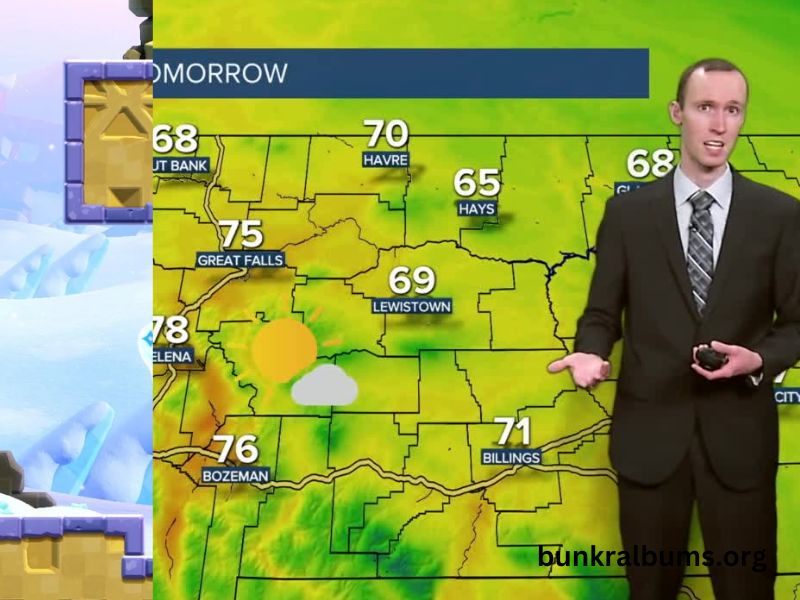When planning your day, one of the most important questions you might ask is, “What’s the weather tomorrow?” Whether you’re preparing for a work commute, outdoor activities, or simply choosing your outfit, knowing the weather forecast can make a significant difference. In this article, we’ll break down everything you need to know about checking tomorrow’s weather, how weather forecasts are made, and why staying informed is essential for your daily routine.
Understanding the Weather Forecast: What’s the Weather Tomorrow?
The question “what’s the weather tomorrow” is a common search for many people planning their activities. Most people check the forecast to avoid unexpected weather conditions, which can range from sunny skies to unexpected rainstorms or extreme weather events. Weather forecasts are predictions made using sophisticated technology, including satellite data, computer models, and expert analysis by meteorologists.
The accuracy of the weather forecast has improved drastically over the years. Weather apps, TV news, and online weather services can now provide detailed forecasts for specific locations, down to the hour. When asking “what’s the weather tomorrow,” you are essentially looking for a reliable source that can give you timely information, including temperature highs and lows, chances of precipitation, and wind speeds.
How to Check the Weather for Tomorrow
There are various methods to check tomorrow’s weather, and each provides you with valuable information tailored to your location. Here are some of the most popular ways people use to check the weather:
1. Weather Apps
Weather apps are the go-to source for many people asking, “what’s the weather tomorrow.” These apps pull data from reputable weather services and provide you with up-to-the-minute updates on current conditions, hourly forecasts, and multi-day predictions. Some of the most popular weather apps include The Weather Channel, AccuWeather, and WeatherBug. You can also customize the app to send you alerts for extreme weather conditions or severe storms.
2. Online Weather Services
Many websites are dedicated to offering detailed weather reports. Searching for “what’s the weather tomorrow” on platforms like Google will yield an instant weather summary at the top of the page. These forecasts include temperatures, rain chances, and general weather conditions. Sites like Weather.com or BBC Weather allow you to explore detailed forecasts for any region.
3. TV Weather Reports
Television news broadcasts still provide valuable weather reports that answer the common question, “what’s the weather tomorrow?” TV meteorologists offer in-depth explanations of weather patterns and forecasts, sometimes going beyond what you see on apps by explaining the science behind the predictions. Watching local news also helps you stay updated on regional weather warnings.
4. Smart Home Devices
With the rise of smart home technology, you can now ask your smart assistant, “what’s the weather tomorrow,” and get an immediate response. Devices like Amazon’s Alexa, Google Home, and Apple’s Siri are equipped to provide weather forecasts verbally, so you can stay informed without looking at a screen.
Key Weather Elements to Watch for Tomorrow
When you’re trying to understand tomorrow’s weather, there are several critical elements to consider. Understanding these can help you better prepare for your day and avoid being caught off guard.
1. Temperature
The first and often most crucial aspect of the weather is the temperature. When you search “what’s the weather tomorrow,” you’ll likely find the expected high and low temperatures for the day. Pay attention to both, especially if you’ll be outside early in the morning or late at night, as temperatures can fluctuate significantly during the day.
2. Precipitation
Rain, snow, sleet, or hail—precipitation can drastically affect your plans. Tomorrow’s weather forecast will indicate whether there is a chance of rain or other forms of precipitation. Many forecasts now include percentages that show the likelihood of precipitation, so if you see 60% rain, there’s a good chance you’ll need an umbrella.
3. Wind Speeds
Wind can impact outdoor activities, and high winds can cause disruptions, especially for travel or when engaging in outdoor sports. Checking for wind speeds in tomorrow’s weather report can help you plan accordingly. Wind chill is another factor that can make the temperature feel colder than it is.
4. Humidity
Humidity refers to the amount of moisture in the air. High humidity can make temperatures feel warmer and contribute to discomfort, while low humidity can lead to dry skin and chapped lips. Humidity is especially important to monitor during the summer months when it can exacerbate heat.
5. UV Index
The UV Index indicates the strength of ultraviolet rays from the sun. If tomorrow’s weather forecast includes a high UV Index, it’s essential to take precautions such as wearing sunscreen, sunglasses, and protective clothing if you plan to be outside for extended periods.
6. Air Quality
Air quality is another factor that’s often included in weather forecasts, especially in urban areas. Poor air quality can affect your health, particularly if you have respiratory issues. When you search for “what’s the weather tomorrow,” it’s useful to check the air quality index as well.
Why Knowing Tomorrow’s Weather Is Important
Being aware of tomorrow’s weather can have a significant impact on your daily life. Here’s why you should always stay informed:
1. Plan Your Day Efficiently
Knowing tomorrow’s weather helps you plan everything from your outfit to your transportation. If rain is expected, you might need to carry an umbrella or wear waterproof shoes. Similarly, if a heatwave is forecasted, you can dress appropriately and ensure you stay hydrated.
2. Travel Safety
Weather can dramatically affect travel conditions. Whether you’re driving, flying, or taking public transportation, weather forecasts can inform you of potential delays or hazards. Snow, fog, or thunderstorms can impact visibility and road conditions, making it crucial to check the forecast before heading out.
3. Outdoor Activities
For those planning outdoor activities like hiking, biking, or going to the beach, knowing tomorrow’s weather is essential. Harsh weather conditions like extreme heat or storms can pose safety risks, so checking the forecast can help you decide whether it’s safe to proceed with your plans.
4. Emergency Preparedness
Severe weather events such as hurricanes, tornadoes, or blizzards can strike unexpectedly. Having up-to-date information about tomorrow’s weather allows you to prepare ahead of time, whether that means stocking up on supplies or adjusting your travel plans.
Final Thoughts on Checking Tomorrow’s Weather
When asking, “what’s the weather tomorrow,” you’re doing more than simply satisfying curiosity—you’re ensuring that you are prepared for whatever conditions lie ahead. By using weather apps, online forecasts, TV reports, or smart home devices, you can stay updated on the latest weather information and make informed decisions about your day.
As weather forecasting continues to improve, staying informed is easier than ever. Be sure to regularly check tomorrow’s weather, especially if you’re planning outdoor activities or travel. With the right information, you can avoid unpleasant surprises and navigate your day smoothly, no matter what the weather brings.
By being proactive about checking tomorrow’s forecast, you can enjoy a more comfortable and productive day, rain or shine.







